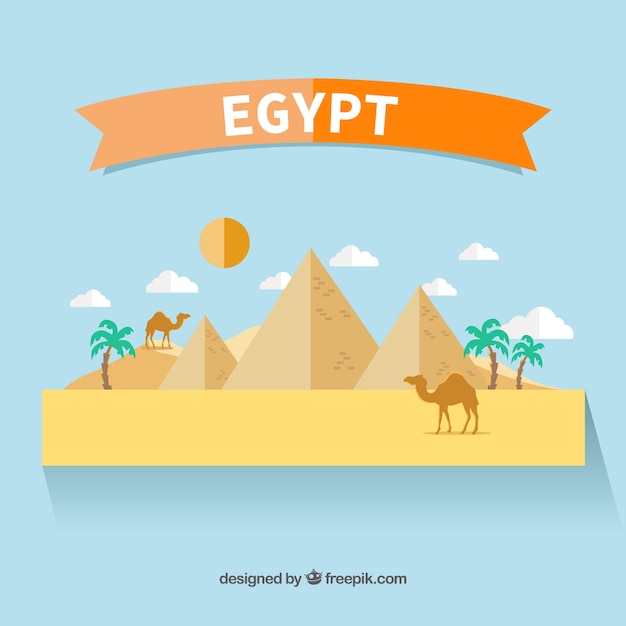6 Fascinating Facts about Egypt

Egypt is home to the only remaining ancient wonder of the world, the Great Pyramid of Giza.
The ancient Egyptians worshipped over 2,000 gods and goddesses.
Cleopatra, the famous Egyptian queen, was actually Greek.
Egypt is mostly desert, but the Nile River provides a lifeline for the country.
The Sphinx, a famous statue in Giza, has the body of a lion and the head of a human.
Ancient Egyptians believed that cats were sacred animals.
The practice of embalming and mummification originated in ancient Egypt.
The world’s oldest dress, made of linen, was found in an Egyptian tomb.
The ancient Egyptians invented hieroglyphics, one of the first writing systems.
Egypt has more than 3,000 hours of sunshine each year.
The capital of Egypt, Cairo, is home to over 20 million people.
Egyptian cotton is known as one of the finest and most luxurious fabrics in the world.
Ancient Egyptians used makeup not only for beauty but also for protection from the sun.
Aswan High Dam, built on the Nile River, is one of the largest dams in the world.
The Great Hypostyle Hall in the Karnak Temple has 134 massive columns.
Egypt has a rich agricultural history and was known as the breadbasket of the Roman Empire.
The ancient Egyptians were skilled mathematicians and developed a decimal system.
Egypt has one of the oldest universities in the world, Al-Azhar University, founded in 970 CE.
6 Fascinating Facts about Egypt part 2
The Rosetta Stone, discovered in Egypt, helped decode hieroglyphics.
Ancient Egyptians believed in an afterlife and the importance of preserving the body through mummification.
Egypt has a wide variety of traditional dishes, including koshari, ful medames, and mahshi.
The Valley of the Kings, located near Luxor, contains numerous pharaohs’ tombs.
Egypt has a rich cinematic history, with Cairo being nicknamed the Hollywood of the Middle East.
Every spring, the Holi festival is celebrated in the city of Sharm el-Sheikh with vibrant colors and music.
The temple of Abu Simbel was relocated to save it from being submerged by the Nile due to the construction of the Aswan Dam.
Egypt’s national dish is called kushari and is a delicious mix of pasta, rice, lentils, and topped with spicy tomato sauce.
The Arabic language originated in Egypt and spread throughout the Middle East and North Africa.
The Mediterranean coastline of Egypt stretches for about 1,000 kilometers, offering beautiful beaches and resorts.
The city of Alexandria was founded by Alexander the Great in 331 BCE and became an important cultural and intellectual hub.
The Egyptian Museum in Cairo is home to over 120,000 artifacts, including the treasures of Tutankhamun.
Egypt has a diverse wildlife population, including unique species like the Nubian ibex, Egyptian mongoose, and Egyptian vulture.
The Luxor Temple in Egypt still holds remnants of vibrant colors despite being thousands of years old.
Egyptians celebrate the birth of spring with a festival called Sham el-Nessim, which dates back over 4,500 years.
The world’s first known perfume was created by the ancient Egyptians and was made from flowers, herbs, and resins.
Ancient Egyptians loved board games, and the most popular game was called Senet.
Egypt has hosted the African Cup of Nations, the most prestigious football tournament in Africa, multiple times.
The largest archaeological site in the world is located in Egypt’s ancient city of Thebes.
The Red Sea is renowned worldwide among scuba divers for its vibrant coral reefs and diverse marine life.
The ancient Egyptians considered the scarab beetle sacred and believed it symbolized rebirth and protection.
Egypt is home to some of the oldest churches and monasteries in the world, including Saint Catherine’s Monastery.
Cairo, the capital of Egypt, is the largest city in Africa and the Middle East.
The ancient Egyptians were skilled astronomers and developed a calendar based on the movements of the stars.
The Egyptian pound is the official currency of Egypt and has been in use since 18
The Al-Azhar Park in Cairo was built on a former landfill and is now a green oasis in the heart of the city.
Egypt’s famous landmark, the Abu Simbel Temples, were carved out of a mountainside and relocated to a higher ground to avoid being submerged during the construction of the Aswan Dam.

